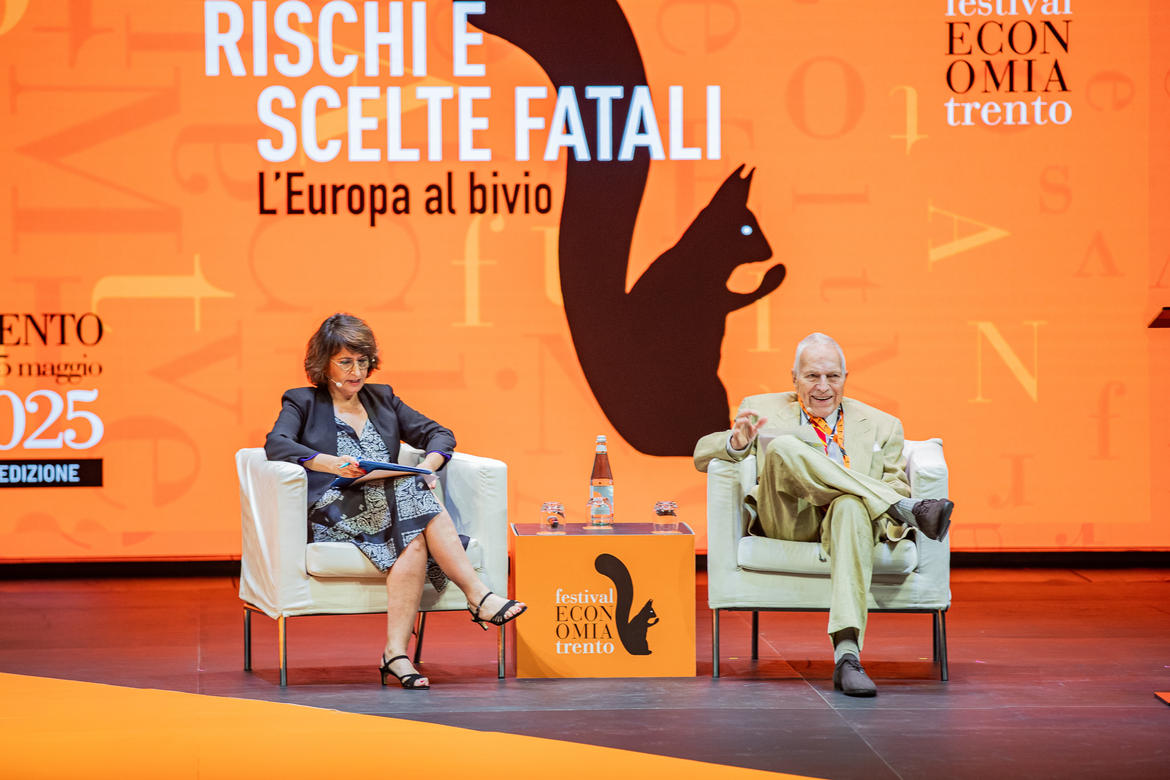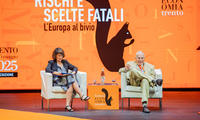
In a moving and intellectually rich session, a lifelong collaboration was remembered, and shared ideas were revisited as Europe stands at a crossroads. The dialogue reflected on decades of joint work exploring how rigid rules, excessive austerity, and technocratic drift have weakened democracy and blocked innovation. True prosperity, they believed, cannot emerge from markets alone, but must be built through political courage and fairness. Economic sovereignty and inclusive capitalism are essential for revitalizing Europe as a democratic project. Ultimately, they argued, the real deficit is not fiscal, but political. Europe must choose to become a voice, not just a set of rules and regulations.
In a powerful tribute, Lisa Fitoussi recalled the intellectual friendship between her father, Jean-Paul Fitoussi, and Edmund Phelps, two economists united by shared beliefs and moral values. For over 30 years, decisions in Europe have been replaced by technocratic constraints, turning leaders into managers. A call for a rupture with the past was made, where deficits, if used to fund human rights like health and education, are “virtuous”, not dangerous. Growing inequality is a barrier to innovation and freedom. As Lisa Fitoussi put it, “Europe cannot live without sovereignty and fairness, and this needs to become a choice”.
Edmund Phelps warmly recalled his 40-year friendship with Jean-Paul Fitoussi, which began in 1984 and deepened through collaborations and shared ideals. Their joint work challenged orthodox economic models, especially during the 1980s European slump. They questioned Keynesian assumptions, arguing that international forces like U.S. interest rate hikes had a deeper impact on European unemployment. As Phelps put it, “a development abroad can cause the rise of interest rates in financial markets around the world and has an impact”. Their work emphasised how global financial dynamics constrain national policy, a theme revived in the eurozone crisis. Phelps also highlighted their shared concern for inequality. He recalled how Fitoussi supported his “Rewarding Work” project, advocating wage subsidies to address the growing wage gap. While they differed on the definition of what a good life is - Phelps focusing on individual agency and creative work, Fitoussi on social cohesion and civic wellbeing - they remained united by a vision of justice and prosperity. “He was brilliant and generous. A source of inspiration”, Phelps stated.








